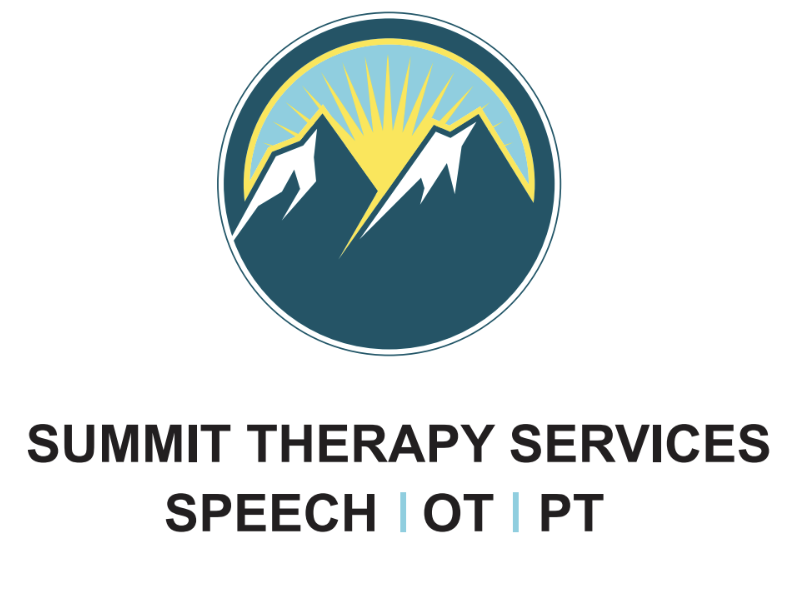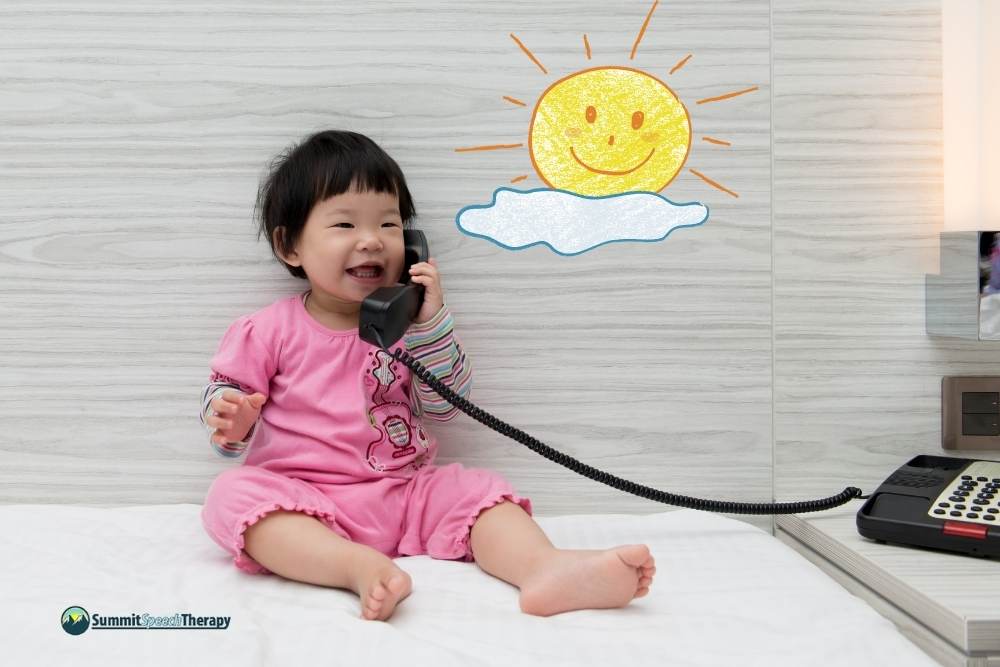Children accomplish an astounding amount during the first two years of their life. They learn to crawl, talk, walk, and socialize with people in a few months. Most of the skills your kid learns have an approximate age range attached. Most babies begin crawling between 6 and 10 months old, and the vast majority are capable walkers by 15 months.
Speech therapy milestones for toddlers
The same milestones exist for speech. For example, your kid should say their first word by the age of one, and they should know about 20 words by the age of 18 months. If your child isn’t meeting these markers, don’t panic. It’s possible that your youngster is having trouble learning language skills and might benefit from working with a speech therapist.
Come visit us at Summit Therapy in Frisco, Texas, if your youngster has difficulties with development. We provide a warm and welcoming atmosphere for youngsters to acquire the skills needed to thrive and have a successful life. In addition, we can assist your youngster in developing the abilities they’ll need as they continue on their path.
The Difference Between Speech vs. Language Therapy for Toddlers
A speech therapist may help your youngster enhance their communication and language abilities. Although speech and language are similar, they are somewhat different in certain respects. As a result, children might have trouble speaking as well as they do with communicating. For example, they might use the correct words in the incorrect order or speak too quietly for people to understand them.
A speech therapist can help your youngster overcome these obstacles and improve their communication skills. In addition, toddlers who have difficulty with language may also struggle to follow simple instructions. This is because they are not able to understand what people are saying. Again, a speech therapist can help your child understand instructions and improve their listening skills.
Speech Therapy for Toddlers
Articulation, voice, and fluency are the three components of speech. Therefore, all three aspects of speech must coexist for effective vocal abilities.
- Articulation involves how our lips, tongue, and mouth move to make different noises. A child struggling with articulation may have trouble with “r” or “th” sounds.
- Voice is the process by which a person produces sounds using their breath and vocal folds. While your child does not have to be loud, he or she should be able to speak at an even pitch.
- The rhythm of speech is called fluency. Children who stutter or stammer may have trouble with fluency.
Language Therapy
Language study is the study of words and how we use them to communicate our ideas and obtain what we want. Speaking, comprehending, reading, and writing are all forms of language. A child with a speech or language problem might have difficulties with one or more of these abilities.
Language includes:
- What words mean. There are many interpretations for certain words. For example, the word “bank” can mean a financial institution or the side of a river.
- Making new words. We could say “friend,” “friendly,” or “unfriendly” and mean something entirely different.
- How words are put together. For example, we would say, “Jane ate popcorn at the movies” instead of “Jane popcorn movies.”
Someone who is having difficulty comprehending other people’s conversations may have a receptive language disorder.
An expressive language disorder is defined as being unable to communicate our thoughts, ideas, and emotions.
How to Tell Whether It’s Time to Visit a Speech Therapist
Every kid develops speech and language abilities at their own rate, with no two children likely to develop at the same speed. That said, if you detect any of the following symptoms in your child, it’s probably time for speech therapy.
Your Child Has a Stutter
Stuttering is a speech disability that refers to creating smooth sentences. Many kids deal with this issue, and several different solutions are accessible.
At 2 or 3, most children begin producing coherent phrases, but of course, this is not always the case. Some youngsters stammer as they grow up. If you notice your kid making an odd face while conversing or any sort of difficulty attempting to generate a sentence, there’s a good chance they are struggling with stuttering.
Visit a speech therapist as soon as you detect anything unusual to assist you in modifying it before it is too late.
Only a Small Number of Words are Spoken by Your Toddler
By 18 months, your toddler should be using more than 20 words and more than 50 words by age 2. Of course, this is not the surest sign that something is wrong, but it’s a good idea to do so on schedule.
Your Toddler Has Difficulties Articulating Sounds
Articulation is also a crucial element of your child’s development. If you notice that your youngster isn’t producing clear sounds, visit a specialist as soon as possible.
You may detect it by listening to your youngster and counting how many sounds they use to create sentences. Some toddlers have a very restricted number of sounds in their vocabulary, omitting numerous vowels and consonants.
Your Child Doesn’t Recognize Simple Sentences
By the age of two, most youngsters know more than 300 words. If your kid has trouble comprehending basic statements like “wear your socks,” it’s worth seeking a speech therapist.
In Social Situations, Your Child is Quiet
Children can be extremely nervous at times. However, if they are quiet at social gatherings or have difficulties expressing themselves regularly, you should consider enrolling them in toddler speech therapy.
This sign can be challenging to acknowledge, but it is not something to be overlooked. Keep an eye on your child’s personality and social conduct.
Your Child Produces Unclear or Immature Speech
Your two-year-old should be able to speak effectively and mix different words together.
If you’re concerned about any of these issues, it’s time to come in for an assessment. Our therapists at Summit Therapy in Frisco, Texas use one-on-one therapy to help your child enhance and master their speech and language abilities.

At What Age Should Speech Therapy be Started for Your Toddler?
Checking for signs of speech disorders can’t be too early. Unfortunately, it’s not feasible to attach a timetable for detecting potential speech problems in children. Still, certain difficulties are connected with a specific age:
- 1 year old: At around 12 months, a kid should comprehend basic concepts and execute simple actions such as nodding. If your child is having difficulties with this, we encourage you to seek out speech therapy for them.
- 2 years old: At this age, children can form sentences and employ many words.
- 3 years old: Your kid’s vocabulary should be relatively large at this point. Take your youngster to a speech therapist if they can’t grasp and pronounce many terms by the age of three.
- 4 years old – Your child should have sentence lengths of 4-5 words and utilize past tense correctly, as well as a vocabulary of around 1500 terms. They should be drawn to the primary hues and convey conditions such as “I hope.” They should also include many “who” and “why” questions.
Conclusion
If your child is experiencing any signs of a speech disorder listed in this article, it’s time to come in for an assessment.
Summit Therapy provides one-on-one therapy to help your child improve and master their speech and language skills.
Schedule an appointment today!

